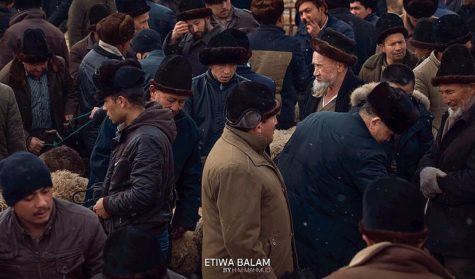Xinjiang: Where Being a Muslim Is a Crime

While students in Orchard Park are learning about algebra and science, children on the other half of the globe are being forcibly separated from their parents and are being pushed into orphanages and state-run boarding schools. While students attend school for six hours a day in Orchard Park, children a half a world away are having their vitality stolen from them. They can spend months to years waiting for their parents to be released from internment camps. These people on the other side of the world are Uyghur Muslims, mainly residing in the Xinjiang Uyghur Autonomous Region (XUAR).
Under the rule of President Xi Jinping of China, the future of Uyghur children is heartbreaking. Due to the forced sterilizations of these Muslims, there will be a missing generation. Adrian Zenz, a German anthropologist who has extensively studied the Uyghur genocide, reports that Xinjiang minority regions have dropped from a 15.44% natural population growth rate in 2013 to a 4.06% rate in 2018. The cause of this drastic decrease in births in XUAR is a result of the sterilizations that Uyghur women are coerced or forced into, most often while in internment camps.
Along with the physical number of Uyghurs disappearing from XUAR, the cultural identity of Uyghur Muslims is being threatened. Children who are forced into orphanages or state-run education facilities are subjected to the indoctrination of Han Chinese culture. The Chinese government claims that these efforts are to reduce extremist violence in XUAR, but these statements are an excuse for the persecution of Muslims. Uyghur children, instead of appreciating their history and culture, are coerced into abandoning their traditional values. In China, being Muslim is a crime.
However, the worst crimes being committed by the Chinese government are hidden from the public. Radio Free Asia, upon examination of imagery produced by satellites, affirms that between two internment camps located in XUAR, it appears that there is a cemetery and a crematorium. This indicates that Chinese authorities are disguising the true number of Uyghur deaths. The cause of their deaths raises extreme outrage, especially because the experiences of Muslims who were dragged into internment camps corroborate the usefulness of a crematorium for the Chinese government. Gulbahar Haitiwaji, a Uyghur woman who was subjected to brainwashing for two years in an internment camp, remarks that people would disappear often and would never be seen again. It was something that she had to get used to, but the scars from her time in the inhumane camp have yet to heal.
Accompanying the intentional murders committed by Chinese authorities, the psychological torture that Uyghurs endure in the internment camps has driven many to suicide. Hope is an impossible feeling to keep in these camps, since deprivation of food and sleep is guaranteed.
The most profound impact of the Uyghur genocide is on the children. If their parents “disappear” while in an internment camp, they are left in a place that supports the indoctrination of a foreign culture. The persecution of Uyghurs guarantees a life of grief, detachment, and suffering for children and future, dwindling generations.
The lives of Uyghur children place the lives of students in Orchard Park in perspective–even in light of a global pandemic. Worries here over exams are unmatched by children in XUAR worrying about whether or not their parents are alive. Comparatively speaking, there is a lot of tolerance and acceptance to be grateful for, because, in places like Xinjiang, tolerance is an unprecedented concept.




